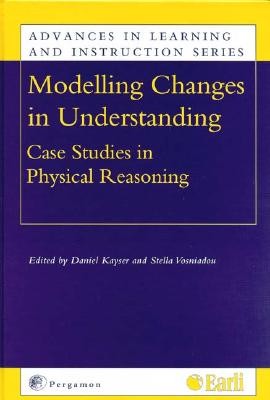| Modelling Changes in Understanding: Case Studies in Physical Reasoning Contributor(s): Kayser, D. (Editor), Vosniadou, Stella (Editor) |
|
 |
ISBN: 0080434541 ISBN-13: 9780080434544 Publisher: Pergamon OUR PRICE: $170.99 Product Type: Hardcover Published: January 2000 Annotation: Published as part of the Advances in Learning and Instruction series, Modelling Changes in Understanding brings together Psychologists, Science Educators and Computer Scientists to describe and explain how we develop an understanding of the physical world around us. The contributors examine how changes in our understanding and consequent learning can be modelled using computer software. Focussing on the discipline of Physics, this volume discusses the following topics: the difference in the organisation of knowledge between experts and novices; the construction of accurate models of the learner at different stages in the knowledge acquisition process; computer models which claim to answer questions and accumulate understanding in a similar way to human beings. |
| Additional Information |
| BISAC Categories: - Psychology | Cognitive Psychology & Cognition |
| Dewey: 153.1 |
| LCCN: 99035714 |
| Series: Advances in Learning and Instruction Series |
| Physical Information: 0.77" H x 6.8" W x 9.62" (1.64 lbs) 312 pages |
| Descriptions, Reviews, Etc. |
| Publisher Description: Published as part of the Advances in Learning and Instruction series, Modelling Changes in Understanding brings together Psychologists, Science Educators and Computer Scientists to describe and explain how we develop an understanding of the physical world around us. The contributors examine how changes in our understanding and consequent learning can be modelled using computer software. Focussing on the discipline of Physics, this volume discusses the following topics: the difference in the organisation of knowledge between experts and novices; the construction of accurate models of the learner at different stages in the knowledge acquisition process; computer models which claim to answer questions and accumulate understanding in a similar way to human beings. |